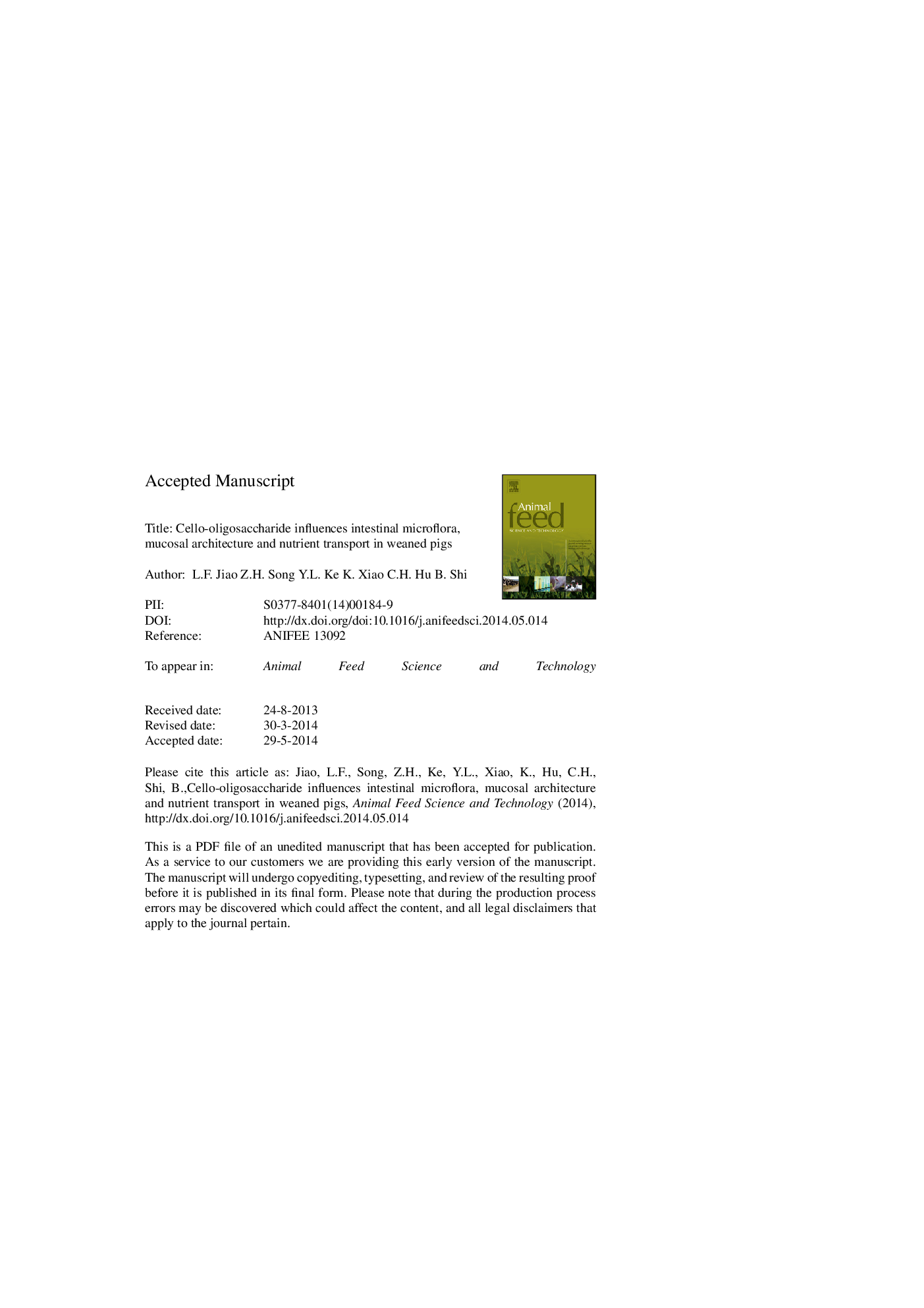| Article ID | Journal | Published Year | Pages | File Type |
|---|---|---|---|---|
| 8491669 | Animal Feed Science and Technology | 2014 | 25 Pages |
Abstract
Effects of cello-oligosaccharide (COS) on growth performance, intestinal microflora, mucosal architecture and nutrient transport of weaned pigs were investigated. A total of 144 piglets, with an average weight of 6.13 ± 0.59 kg weaned at 21 ± 1 d age, were randomly allotted to four groups for two weeks. The four treatments were the control (basal diet), and the basal diet supplemented with 1.5, 3.0, 4.5 g/kg COS, respectively. The results showed that COS supplementation had no effect (P > 0.05) on average daily feed intake, daily gain and gain/feed ratio. Incremental levels of COS increased Lactobacillus (linear P = 0.003; quadratic P = 0.007) and decreased Clostridium (linear P = 0.005; quadratic P = 0.007) in jejunal contents, increased villus height (linear P = 0.005; quadratic P = 0.007), villus height/crypt depth ratio (linear P = 0.000; quadratic P = 0.001) and villus surface area (linear P = 0.009; quadratic P = 0.012), increased RNA/DNA and protein/DNA ratio in jejunal mucosa linearly (P = 0.006 and P = 0.006) and quadratically (P = 0.017 and P = 0.009), respectively. The electrogenic nutrient transport from the jejunal mucosa in Ussing chambers showed that increasing COS level increased sodium-dependent glucose transport (linear P = 0.009; quadratic P = 0.016) and l-glutamine transport (linear P = 0.029; quadratic P = 0.080), respectively. The results indicated that COS has a positive effect on intestinal microflora, mucosal architecture and nutrient transport in the piglet small intestine after weaning, and the dietary COS offers a promising approach to alleviative post-weaning intestinal tract disorders in pigs.
Keywords
Related Topics
Life Sciences
Agricultural and Biological Sciences
Animal Science and Zoology
Authors
L.F. Jiao, Z.H. Song, Y.L. Ke, K. Xiao, C.H. Hu, B. Shi,
